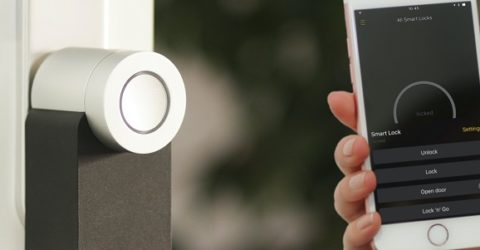What is a smart home?
The definition of what is a smart home has changed over the years, and today it incorporates everything from green energy to automation

Earlier this year, a £100 million waterfront development was announced as part of the ongoing Liverpool Waters regeneration scheme.
The developer’s typically excitable press release talked about constructing retail space, public realm, and what it referred to as 330 smart homes.
In this case, that term referred to energy management, though it carries different connotations elsewhere. Even so, the clear implication was that smart homes are inherently desirable.
So what is a smart home? Is it a good thing, and should we all aspire to live in one?
What is a smart home defined as?
Unfortunately, there’s no agreed definition for the term ‘smart home’.
Investopedia defines it as “a convenient home setup where appliances and devices can be automatically controlled remotely”.
Android Authority disagrees, claiming it’s “a residence equipped with a number of devices that automate tasks normally handled by humans”.
The HowStuffWorks website suggests “smart homes connect all the devices and appliances in your home so they can talk to each other”.
Meanwhile, the developers at Liverpool Waters were referring to the presence of power usage monitoring, EV charging stations and communal solar panels across their development.
There’s general agreement that the internet is involved in smart homes, but even here, the waters are muddied by edge computing.
This relatively new phenomenon involves processing taking place locally on a specific device, rather than remotely in the cloud.
MoreIs smart tech vulnerable to broadband outages?
If you ask Alexa something, your speech is recorded, interpreted, sent to a central server and used to interrogate a database before a suitable response is chosen, fed back and broadcast.
Each step in that journey takes time. It’s far quicker to perform the algorithmic analysis on-site, eliminating latency or network delays – and also the internet’s involvement.
Perhaps a safer definition for a smart home is one which can be controlled remotely, such as through an app or even a dedicated fob.
Being able to close your curtains at the touch of a button is pretty smart, even if the curtains aren’t online or connected to an app.
Should I make my home smart?
Ultimately, this depends on your degree of comfort with apps and automation.
If you’re a regular visitor to the Google Play Store and covet your neighbour’s Hive heating system, being able to pre-heat the oven obviously has appeal.
Traditionalists who regard mobile phones as suitable only for making phone calls probably wouldn’t want to use them for voice-controlled lighting or live-streaming security cameras.
MoreThe future of homes is Automation
There’s huge potential for smart devices to simplify our lives, but today’s soup of protocols and incompatible hardware makes this a complex process at present.
Firms like Google, Amazon, IKEA and Apple are working on a universal smart home standard called CHIP (Connected Home over IP), which should allow every smart device to work together.
It may be safer to wait until this is rolled out before attempting to create your own multifaceted smart home.






